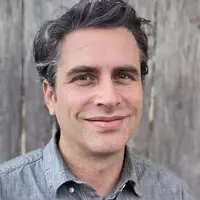Curiosity to Question: A New Model for Disciplinarily Diverse and Inclusive Course-Based Research Experiences
Conveners
 Adam Papendieck, The University of Texas at Austin
Adam Papendieck, The University of Texas at Austin
 Julia Clarke, The University of Texas at Austin
Julia Clarke, The University of Texas at Austin
 Kathy Ellins, The University of Texas at Austin
Kathy Ellins, The University of Texas at Austin
Curiosity to Question (CtQ) is an emerging model for course-based research experiences that are diverse by design. By recruiting for diverse identities and disciplines, and by emphasizing open inquiry, peer mentorship and iterative peer feedback, CtQ courses encourage the kind of epistemic and cultural fluencies required for inclusive and interdisciplinary science. In this workshop, the facilitators will report on what they are learning about how and why the CtQ model works, and will share new resources that earth educators can use to design for diversity. Working in small groups, participants will be facilitated in the development of a proposal for a CtQ-style course or module of their own.
Session Connection Info
